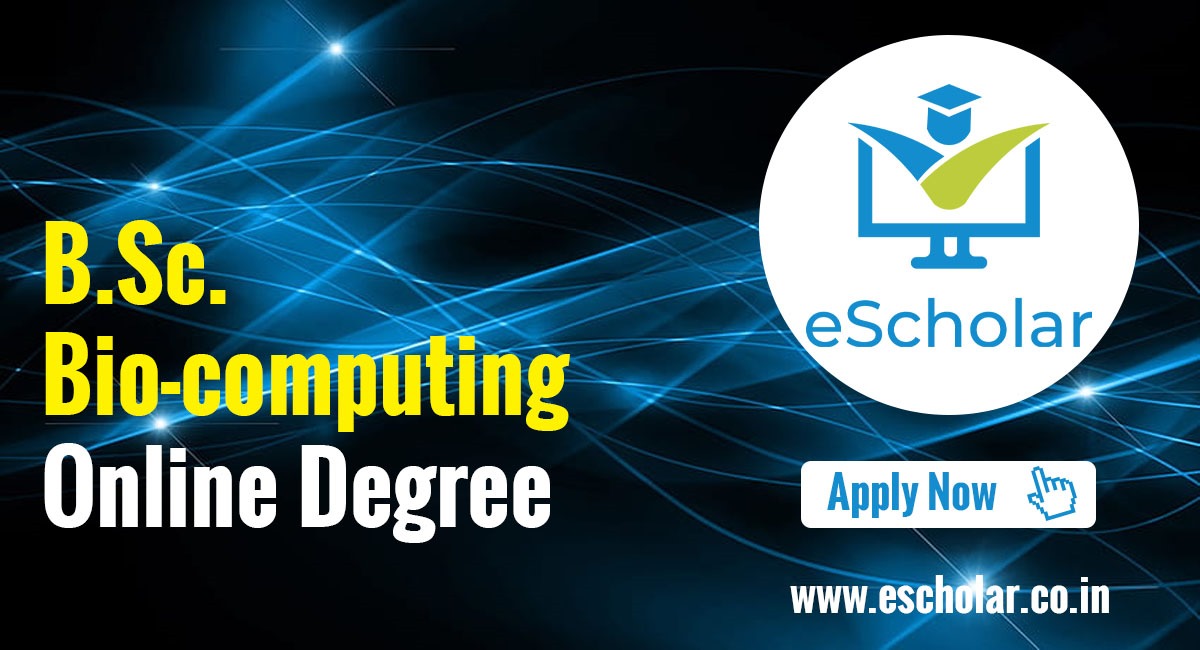B.Sc Biocomputing degree Details, Subjects, Career.

Biotechnology and computing are two of the most rapidly evolving fields in the world, revolutionizing various industries and shaping our future. The B.Sc Biocomputing degree provides a unique opportunity to bridge these two disciplines. And equipping you with the expertise to analyze, interpret, and manipulate biological data using powerful computational tools.
Course Duration and Eligibility:
B.Sc Biocomputing degree typically takes three years to complete, offering a comprehensive blend of theoretical knowledge and practical experience. To embark on this journey at the intersection of biology and computing, you’ll typically need to have completed your 10+2 (or equivalent) with Physics, Chemistry, and Mathematics as mandatory subjects. Some universities may have additional requirements, so be sure to check with your chosen institution.
Why choose this course:
In today’s data-driven world, the ability to analyze and interpret vast amounts of biological information is crucial for diverse fields like medicine, agriculture, and environmental science. By choosing the B.Sc. Bio-computing program, you’ll:
Become a Data Decoder: Master advanced computational tools and algorithms to analyze biological data, identify patterns, and extract valuable insights.
Contribute to Groundbreaking Research: Be at the forefront of scientific discovery, using your bio-computing skills to develop new drugs, therapies, and solutions to global challenges.
Develop In-demand Skills: Gain expertise in bioinformatics, programming languages, and data analysis techniques, making you highly sought-after in various industries.
Explore Diverse Career Opportunities: Pursue a rewarding career in research, healthcare, pharmaceuticals, biotechnology, or other related fields.
Major Subjects and Syllabus:
Prepare to delve into a B.Sc Biocomputing degree curriculum that blends the fascinating worlds of biology and computing:
Biochemistry Fundamentals: Gain a strong foundation in the structure and function of biomolecules, including proteins, carbohydrates, lipids, and nucleic acids.
Molecular Biology and Genetics: Explore the intricacies of DNA, RNA, and how they govern genetic inheritance.
Bioinformatics and Data Analysis: Learn powerful computational tools and algorithms for analyzing and interpreting biological data.
Programming Languages: Master programming languages like Python, R, and Java to develop software applications and analyze biological data.
Statistics and Machine Learning: Gain insights into statistical analysis techniques and machine learning algorithms for extracting meaningful patterns from biological data.
Skills Developed from this course:
Beyond scientific knowledge and computational expertise, the B.Sc. Bio-computing program will equip you with valuable skills, such as:
Critical Thinking and Problem-Solving: Analyze complex biological data, identify underlying principles, and develop innovative solutions to scientific challenges.
Data Literacy: Understand different types of biological data, interpret complex results, and communicate findings effectively.
Computational Skills: Master programming languages, data analysis tools, and computational methods for various bioinformatics applications.
Teamwork and Collaboration: Effectively collaborate with researchers, scientists, and other professionals in a diverse team environment.
Job sectors available:
With a B.Sc. Bio-computing program, you can explore a wide range of exciting career paths, including:
Bioinformatician: Develop and implement computational tools for analyzing biological data, supporting research in various fields.
Computational Biologist: Use computational modeling and analysis to solve complex biological problems and design new therapies.
Clinical Data Analyst: Analyze clinical data to improve patient care, identify disease patterns, and develop new diagnostic methods.
Biotechnology Researcher: Research and develop new products and technologies in the biotechnology industry, using your bio-computing skills.
Healthcare Data Scientist: Analyze healthcare data to improve healthcare delivery, reduce costs, and personalize medical treatments.
Conclusion:
The B.Sc. Bio-computing course offers a unique opportunity to equip yourself with the knowledge and skills needed to navigate the exciting intersection of biology and computing. With its blend of scientific understanding, computational expertise, and career opportunities. B.Sc. Bio-computing course will empower you to make a significant impact on the future of healthcare, research, and numerous other fields.
So, if you are passionate about both science and technology, and dream of using your skills to solve real-world problems, then the B.Sc. Bio-computing course might be the perfect path for you.
For More Details:
E-Mail: studentsupport@escholar.co.in
Visit: www.escholar.co.in


